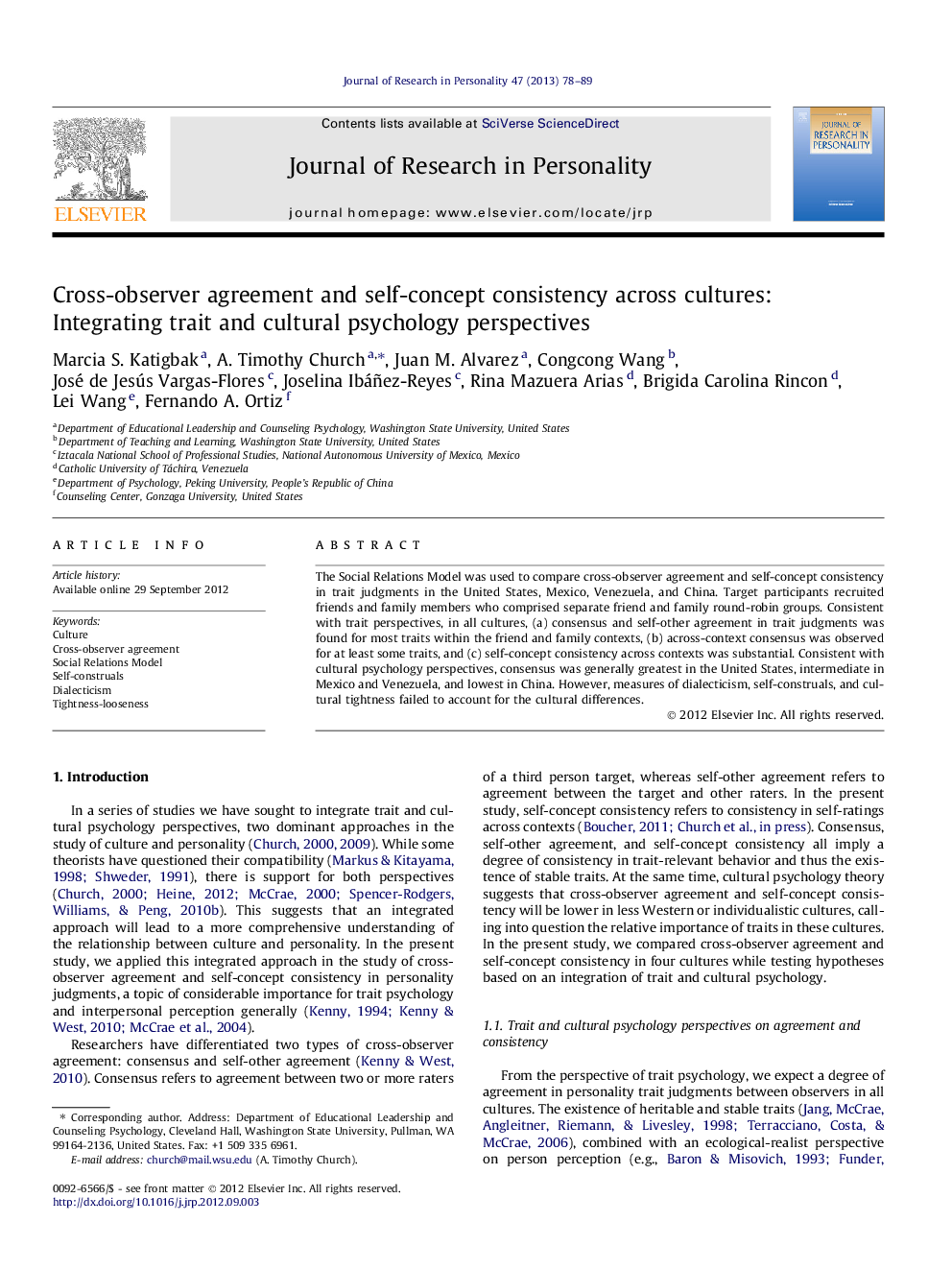| Article ID | Journal | Published Year | Pages | File Type |
|---|---|---|---|---|
| 951441 | Journal of Research in Personality | 2013 | 12 Pages |
The Social Relations Model was used to compare cross-observer agreement and self-concept consistency in trait judgments in the United States, Mexico, Venezuela, and China. Target participants recruited friends and family members who comprised separate friend and family round-robin groups. Consistent with trait perspectives, in all cultures, (a) consensus and self-other agreement in trait judgments was found for most traits within the friend and family contexts, (b) across-context consensus was observed for at least some traits, and (c) self-concept consistency across contexts was substantial. Consistent with cultural psychology perspectives, consensus was generally greatest in the United States, intermediate in Mexico and Venezuela, and lowest in China. However, measures of dialecticism, self-construals, and cultural tightness failed to account for the cultural differences.
► Cross-observer agreement was found in the US, Mexico, Venezuela, and China. ► Across-context (friend vs. family) consensus was observed for some traits. ► Substantial self-concept consistency across contexts was found in all four cultures. ► Consensus was greatest in the US and lowest in China.
